culture, gift giving, Japanese sweets, wagashi
Japanese Housewarming Gift Giving Traditions That You Need to Know!
Bianca Bache
Posted on September 30, 2022
Share:
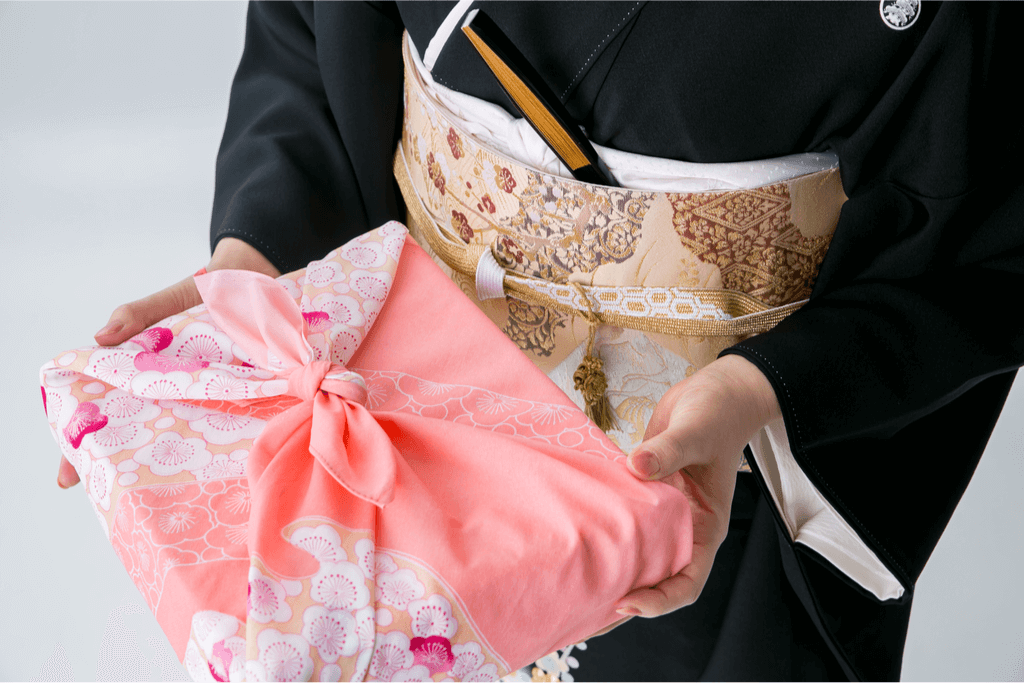
Gift giving is something that is deeply rooted in many cultures around the world, and Japan is no different. Japan as a whole has an intricate system for present giving that revolves around certain customs and traditions, including the customs around Japanese housewarming gifts.
During the gift giving exchange the type of gift, when the gift is given, what envelope the gift note is in and even how much the gift giver should be spending on the giftee is important.
The song and dance around this ritual is sometimes a little tricky to get your head around. But, once you’ve mastered it will be well worth it. One of the lesser known gift giving exchanges is the Japanese house warming gifts. Here is a rundown so you’re up-to-date with the etiquette, tradition and meaning of housewarming gifts in Japan!

Experience Japanese gift giving culture with Sakuraco snack box! Sakuraco delivers authentic and traditional Japanese snacks, sweets, teas and ceramics that’s perfect for sharing!

Gift giving in Japan vs Western cultures
The Japanese culture around gift giving is not limited to social occasions like it is in Western countries. In Japan the emphasis is on social obligation, rather than for the event. Gifts are both used to commemorate an occasion but are also given when indebted to others, for friends, family and business. Traditionally Japanese gift giving is unique in the sense of putting emphasis on the action of giving the gift, rather than the value of the gift itself. The presentation and thoughtfulness in which the gift is presented holds more importance than the dollar value of the present.
The thrill and rush of finding the “perfect gift” for loved ones in Western cultures is often rooted in the belief of what the media is portraying. The perfect present could mean that it is the most expensive thing that can be afforded, or by waiting hours in a snaking instore line, or even participating in stampedes to get the best deals. The chaos of finding or fighting for a gift that is “Best Buy Now” gives the hunger for more. That’s not to say that Japan does not participate in consumerism. Far from that. However, it is important to consider that the emphasis within Japan and Japanese people is on the thoughtfulness surrounding gift giving and receiving.
A gift for a gift
In Western cultures it is common to send a thank you note for a gift that is received for high price items or specialty occasions like weddings. But unlike Western cultures, gifts in Japan are given and received in a cycle of obligations and gratitude. A cycle of expected “Thank you” presents are used to express gratitude! The “thank you” gifts in Japan are called O-kaeshi and popular O-kaeshi gifts are usually packaged sweets, hand towels and alcohol. The value of this gift usually equals half the value of the original gift. Luckily in Japan stores are well-equipped to support the complex gift-giving culture.
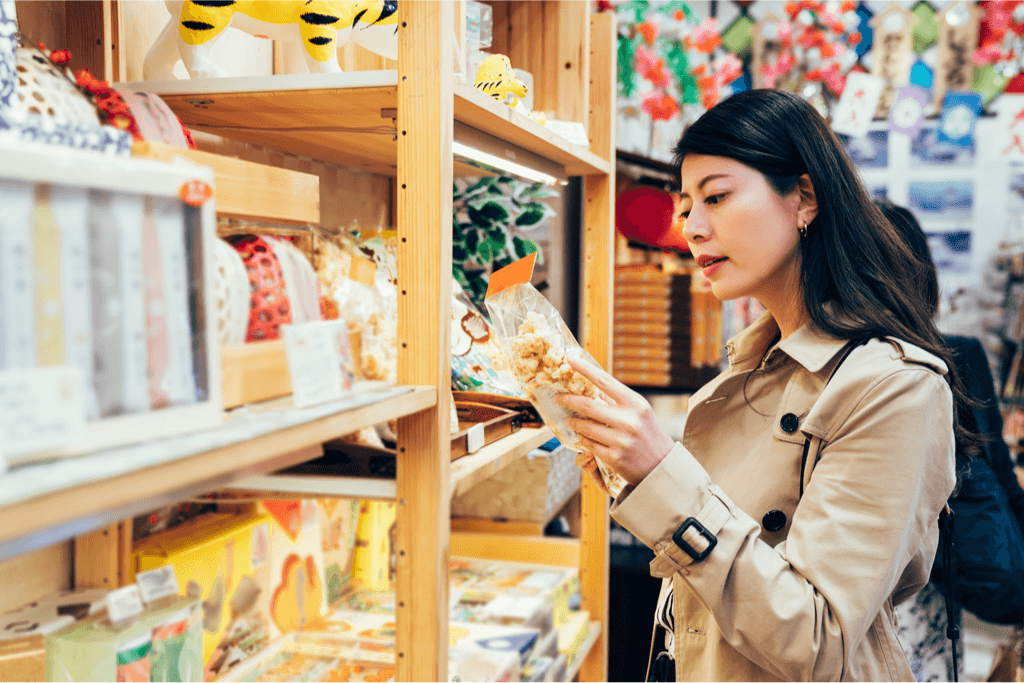
Types of gift giving in Japan
In Japan, much like in Western cultures, presents are commonly given on anniversaries, wedding gifts, births, graduations, and housewarmings. However, traditionally gifts were not given on birthdays or Christmas’s. But as an Americanized culture entered into modern Japan this changed and it has become more common nowadays.
O-miyage (souvenirs) gifts are another type of gift given to family, friends and coworkers after returning from a trip. The expected gifts tend to be individually wrapped consumables, teas and snacks, or regional specialty products that have intricate gift wrapping. The o-miyage that is given to coworkers is common to buy when on vacation as a way to thank them for any trouble or inconvenience that was caused by your absence.
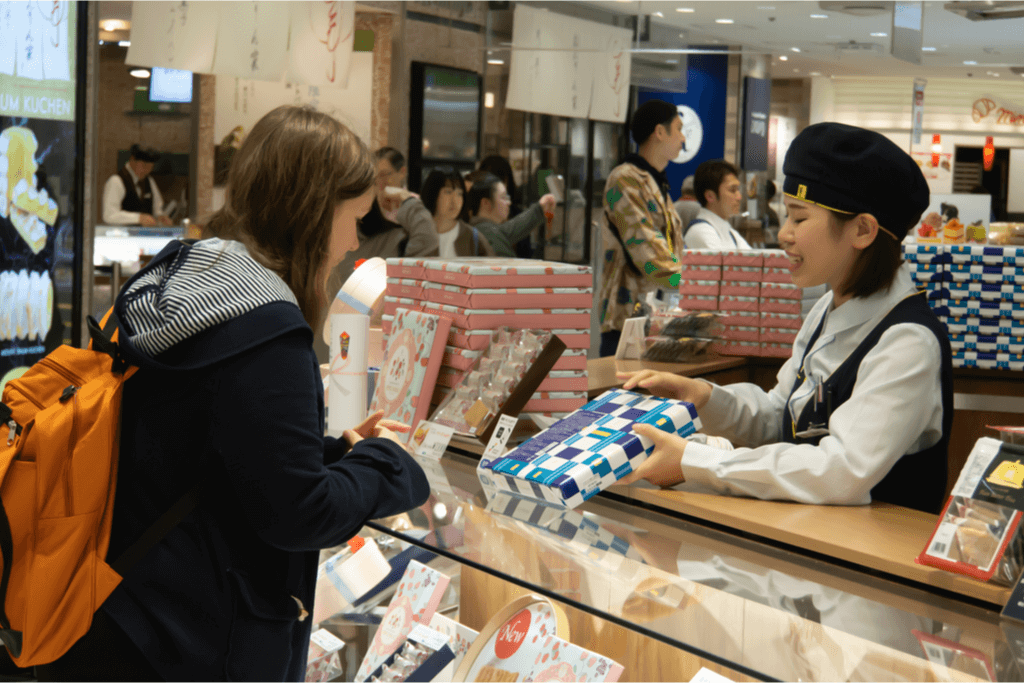
Japanese Housewarming Gift Giving
Giving a Japanese housewarming gift giving is a tradition that goes back centuries in many cultures. The Japanese housewarming gifts culture has a long-established history that is tied to lucky superstitions. Giving a present has layers of meaning, such as fresh bread means that the new owners will never go hungry; a new coin, for wealth; a straw broom, to sweep away any evil; and wine or sake to bring the household happiness.
The nuances around gift giving are important to be aware of. When it comes to giving a Japanese housewarming gift whether it is for a relative or a new neighbor, it is a key tradition to take part in for the sake of continuity of a relationship. Although times have changed with superstitious gifts, bringing O-miyage is the best gift to give. Unsure exactly what to get and need gift ideas? Sakuroco is the answer! The luxurious, high quality and authentic Japanese snack box is the perfect gift to help someone celebrate their new home!
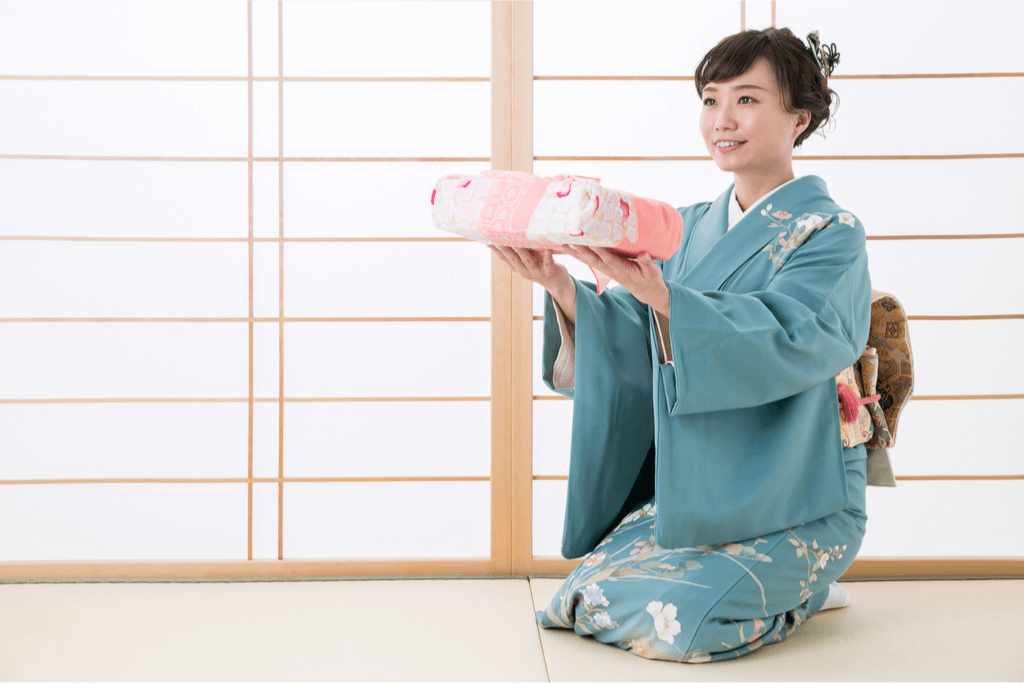
Gifts to avoid for Japanese Housewarming Gift Giving
To ensure there are no faux pas in the gift giving exchange there are a few rules to follow. Firstly, stay clear from flowers like lilies, lotus blossoms, camellias and any type of white flower as they are all associated with funerals. Secondly, red Christmas cards should be avoided too as funeral notices are customarily printed in red.
Lastly, and probably the most important, giving a gift with anything that comes in a 4 or 9 is considered unlucky and has strong superstition undertones. In Japanese the pronunciation of 4 sounds like the word for death (shi). This is a similar case with 9 (ku). In Japanese 9 sounds similar to the Japanese word for torture or suffering.
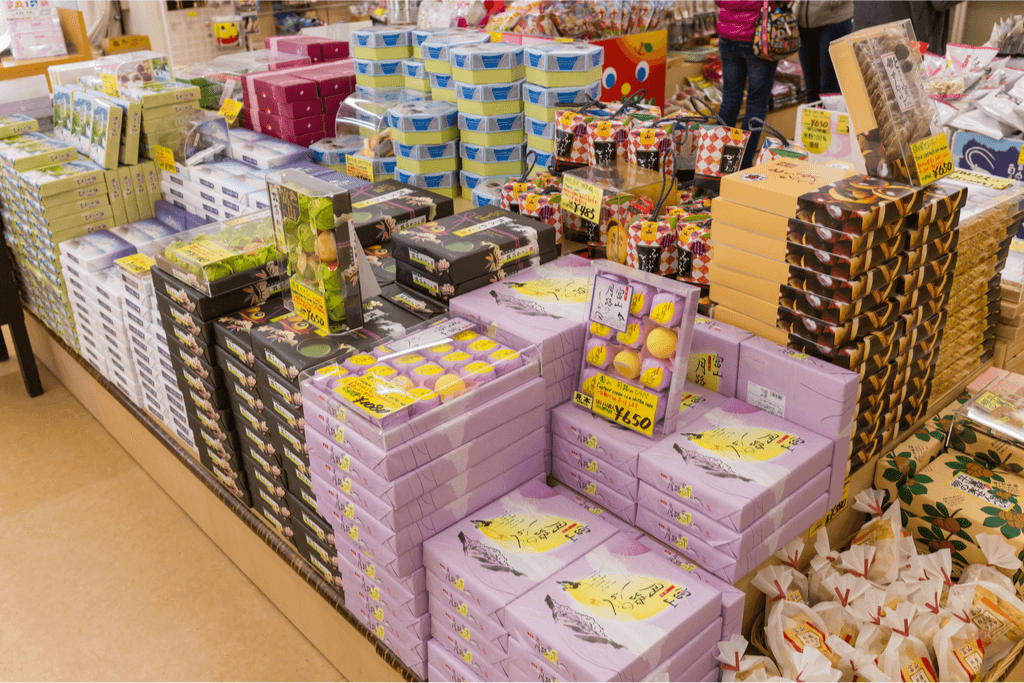
When it comes to Japanese house warming gifts, and gift giving in Japan, understanding the nuances and etiquette is vital in creating and maintaining relationships. Emphasis on the thoughtfulness of a gift is important in the gift giving dance. Whether it’s a box of snacks, teas or ceramics, or even face towels it’s the thought that counts!
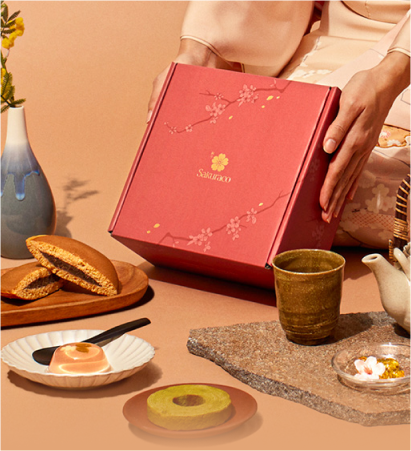
Discover authentic flavors with Sakuraco
Get Sakuraco 

Discover authentic flavors with Sakuraco
Get Sakuraco 
Related Articles
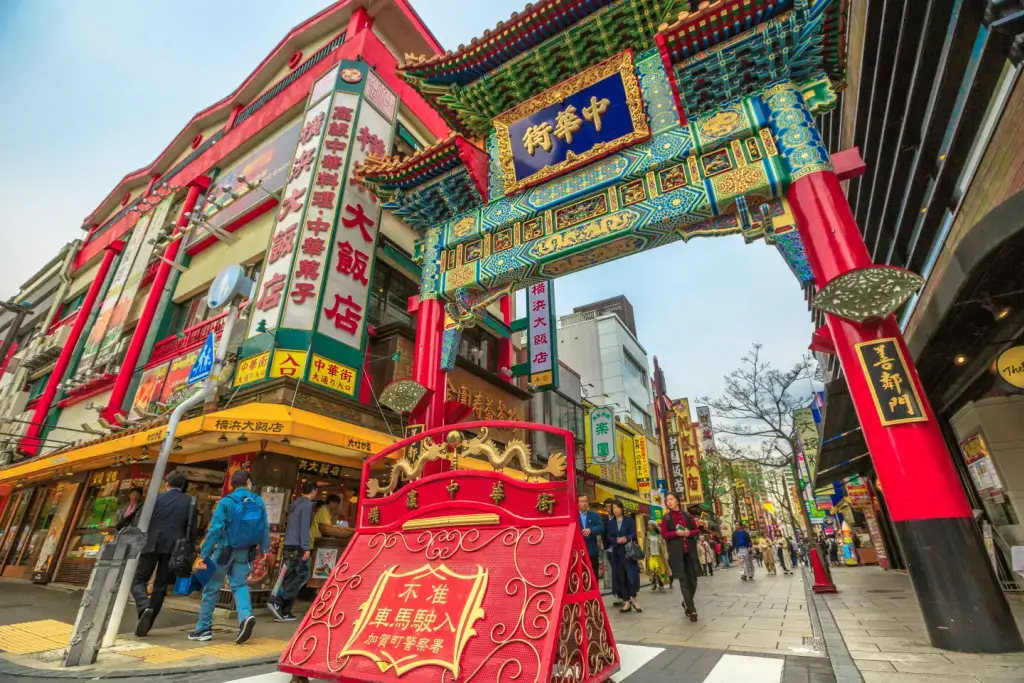
Yokohama Chinatown: Everything You Need to Know!
Yokohama, a city just south of Tokyo, is home to the largest of Japan’s three Chinatowns, called “chukagai” in Japanese. Established in the late 19th century, Yokohama Chinatown is a historic area home to hundreds of businesses.
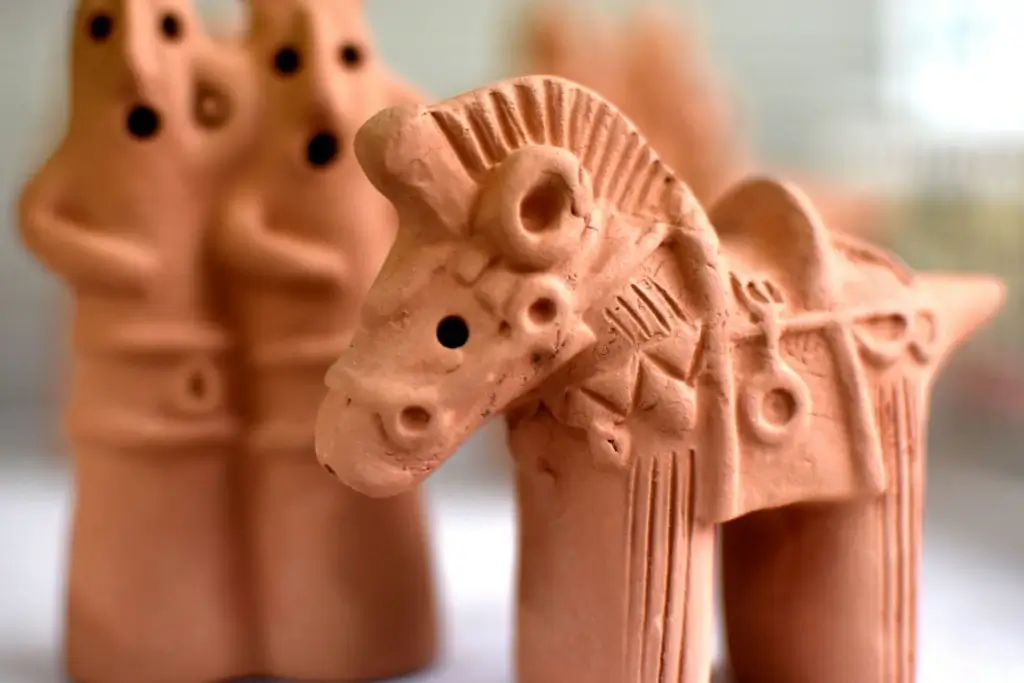
Yamato Period: A Look at Japan’s Early Path to Unity
The Yamato Period laid the foundation for modern Japan. Powerful clans emerged to shape the islands’ future and form the country’s first early states.
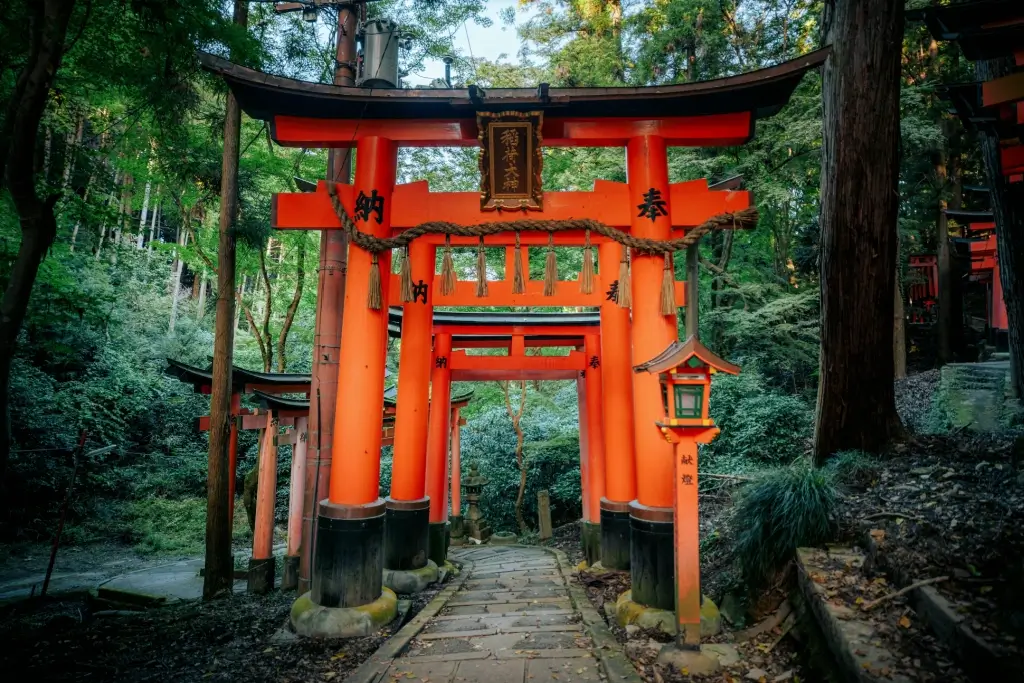
Kyoto Shrines: Five Best Ones to Visit!
Kyoto shrines preserve history within their walls, and their network carries the old days into modern Japan. Visiting them can be a memorable way to learn about Japan’s past and understand how spiritual traditions coexist with modern life.
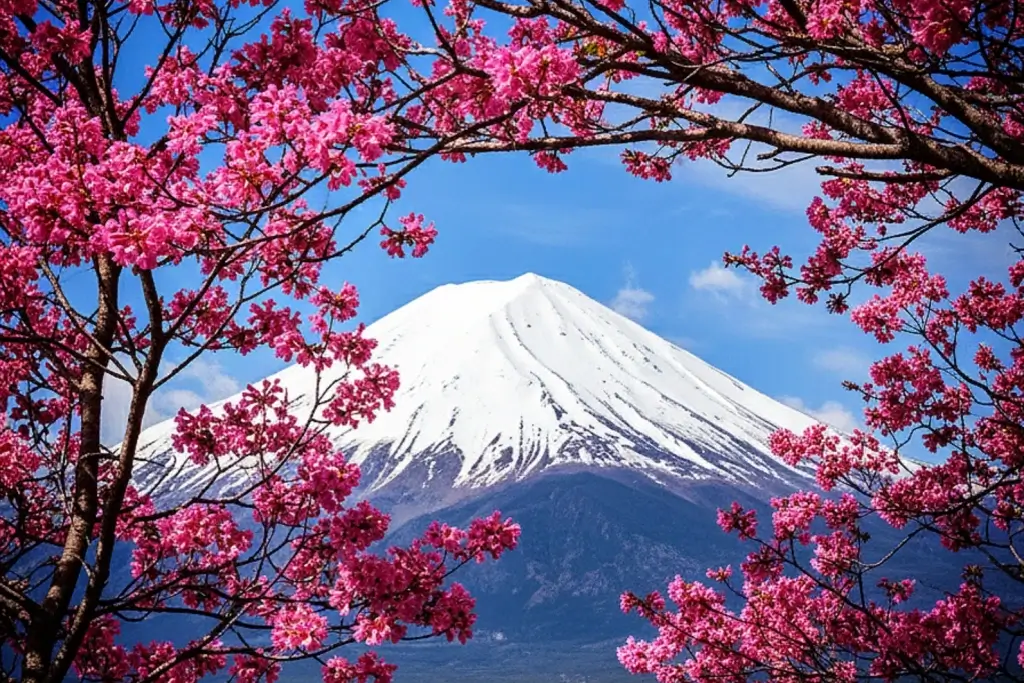
Cherry Blossom Flower Variety Across in Japan: The Ultimate Guide!
Many people know the soft pink cherry blossoms. However, sakura in Japan includes a wide variety.


